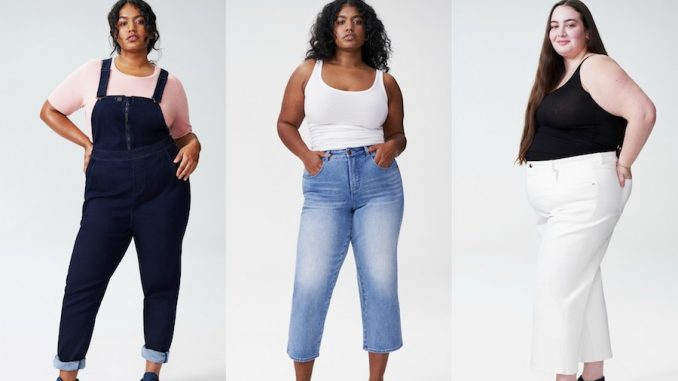
By Melissa Morales
We live in a world full of beauty standards defined by societal perceptions and images constructed through social media. For women, the predominant, ideal picture of beauty is being supermodel thin and having a slim waist with Eurocentric facial features such as having blonde hair, blue eyes, and fair skin. While the beauty standards in our world today are shifting and have become more inclusive of appreciating diverse bodies and faces, the shift is still extremely gradual.
Having a bigger body than many girls, and fitting into the category of being “plus-size,” I personally know and understand this issue: The progress towards dismantling preconceived beauty standards still has a lot of work to be done, especially in the fashion industry.
Recently, there has been controversy about Torrid, the plus-size clothing brand, and TikTok creator That Other Hannah. Hannah is one of the biggest plus-size fashion influencers on TikTok and reviews different plus-size clothing brands with viewers.
On Sept. 28, Hannah posted a TikTok video reviewing Torrid’s new collection. She discussed her letdown with Torrid’s choice of pricing, materials, and design of clothing. The brand has always established itself as a go-to for plus-size clothing. However, many people, including Hannah and her followers, do not like its products, especially those in the latest collection.
Hannah continued to voice her opinion on the collection and the company addressed her claims. Torrid also disabled comments under all of its videos and posts across its social media platforms. An unknown individual also attempted to get Hannah fired from her job after her Torrid live-streamed review, telling her workplace that she had done things such as “using social media to dox and harass individuals.” Hannah is currently taking a break from her socials. Is this a pure coincidence or could it have been Torrid’s doing?
Regardless of which, this backlash against Torrid sheds light on the truth of plus-size clothing: The latest fashion trends typically aren’t carried by plus-size retailers. Plus-size women, therefore, aren’t able to stay on top of fashion fads. Of course, taste in fashion is subjective, and many plus-size women may be completely fine with the variety of clothes available to them currently. But for others like myself, the more diverse and modern clothing pieces are, the better in general.
The latest fashion trends typically do not come in extended sizes and predominantly only cater to straight sizes. There can be several reasons for this, one being that having extended sizes means hiring more models, creating more patterns, and of course, more fabric, which leads to more expenses in total.
Another issue with the lack of plus-size inclusivity on the latest fashion trends is the lack of true plus sizes. According to an article from Refinery29, “Brands that call themselves size-inclusive or utilize marketing tactics on TikTok that suggest they carry plus-sizes, when the truth is far from that.” Many fashion brands are actually not size-inclusive, only going up to XXL and not having sizes such as 3XL, 4XL, and up. This, in turn, brings up the issue of sustainability.
It should always be encouraged to shop ethically and eco-consciously when it comes to buying clothes. However, while sustainable plus-size brands do exist, there aren’t enough of them, and the few available are rarely advertised.
According to an article from BBC, a blogger named Sam Roswell talked about her own issues with sustainable brands. “I see new shops opening that are using ethical fabrics, organic cotton, and still there are no plus sizes. I feel like we’re forgotten,” Roswell said. This reflects upon two issues: size inclusion and affordability.
As a result, many plus-size women buy from fast fashion brands because of the lack of availability from sustainable brands. According to an article from Glossy, “Fast-fashion retailers often capitalize off egregious labor practices, and their affordable, diverse sizing can leave women who wear above-average sizes chained to the cycle.” Not to mention, many individuals from the plus-size community tend to have lower-incomes, per an article from Nature.com, which makes fast fashion brands especially affordable.
Yet, this leads to another issue. Because the plus-size community is heavily rooted in activism, plus-size women and influencers especially, are criticized for buying and working with fast fashion brands, some of which include Boohoo, Pretty Little Thing, and H&M. They are expected to be ethically correct in their fashion choices because of their marginalization and advocacy for social change, but the real root of the problem lies in the fashion industry itself, which is something plus-size women cannot change all by themselves.
Evidently, there is a lot of work that has to be done in order to achieve inclusivity and sustainability in the fashion industry. For myself and others who are a part of the plus-size community, the best thing to do is to currently focus on the progress at hand and raise awareness towards the few plus-size sustainable brands that are available, such as Universal Standard, Big Bud Press, Sotela, and Girlfriend Collective. It is extremely important to highlight these issues to encourage solidarity for more changes to come.
